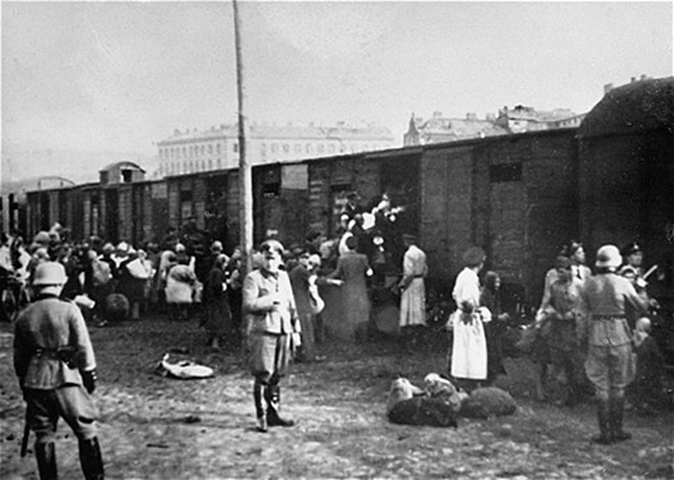More than 1,200 victims of the Jewish Holocaust have been reburied in Belarus after builders discovered remains in a Nazi mass grave in February 2019.
Soldiers arrived in the centre of Brest, on the western border of Belarus and Poland, to help exhume the bones of 1,214 Jews. According to authorities, the bones were the remains of people who were killed during Nazi occupation of the now-residential area between 1941 and 1942.
The bodies were found in a pit located on a construction site for a new luxury housing project, which was a ghetto housing at least 28,000 Jews during the time of Nazi occupation of Poland and the Soviet Union.
Historians believe that around 17,000 people were shot by Nazis in October 1942 near the local railway station, with thousands more assumed dead around the area. In total, around 66 per cent of Belarusian Jews were killed during the Holocaust.

According to the soldiers present, many of the bodies bore bullet holes that suggested they had been executed with a gunshot. Many personal items such as shoes were also discovered within the grave.
To honour those found, their remains were reburied on 18th June during a burial service held by volunteers from Israeli emergency response group Zaka, supervised by a local Chabad-Lubavitch rabbi.
As part of the burial service, the remains were placed into 120 blue coffins that were embossed with the star of David and placed side-by-side in a large grave within the city cemetery.
As part of the funeral service, Belarusian soldiers fired a gun salute that was heard by around 300 attendees including a number of Jewish community members and Israel’s ambassador in Belarus, Alon Shoham. Each attendee was invited as part of the service to throw earth onto the casket before the burial was completed.
Speaking after the burial, Shoham said: “The soul goes up to heaven through this process, so it was very important for the Jewish community that it was all done with Jewish custom.”
Some Jewish attendees stated that they had struggled with the burial service and had been overwhelmed by hearing about the suffering endured by those found in the grave.
One community member, however, stated that while she had mixed feelings, she felt it was important for such things to remain in people’s memories. “If we don’t remember, then things like this can happen again,” she said.
